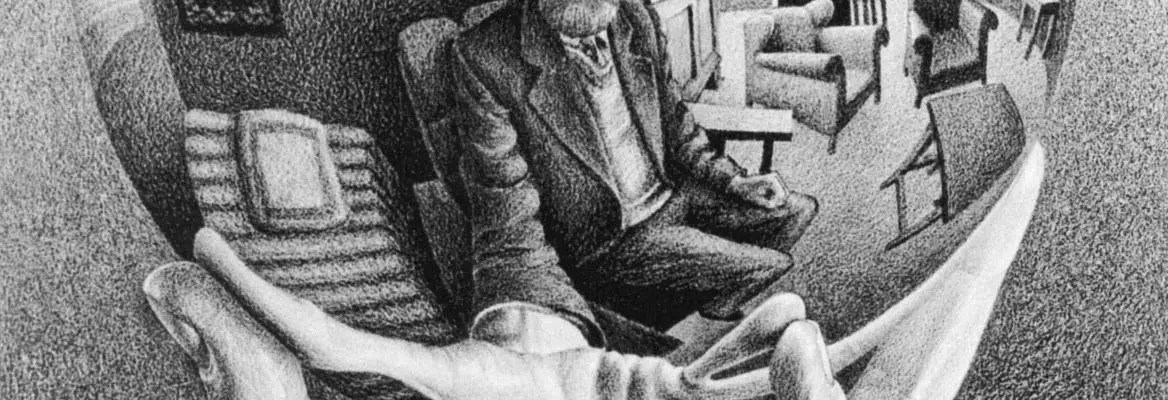If we are discussing the self, it might be appropriate to write as a self, from the position of myself. It might be appropriate?! I can do nothing else! I am trapped in the self, but this is an odd precept. I am not trapped – there is no preceding ‘I’ that has been contained within an inimical ‘self’ – at least I do not believe so, though some theologians might argue that the soul is trapped within the body, tested by mortal vicissitudes. Indeed this is a central precept of any dualistic spiritual system in which the soul is opposed to the body, with an accompanying suggestion that one day the soul will be released from the material realm. Yet, it is not my central precept.
Thus, one might ask: what am I? This is an unnerving question, as the subject stares into the mirror, at herself, himself, as s/he sees the unknown eyes of the unknown staring back at her/him and wonders – who directs this gaze? And what lies behind it? The mirror image is an image, not the self. And yet it confounds, because the self contemplates the self and wonders what is within and yet it is the wondering within that is wondering – and thus we might run screaming from the mirror, begging for someone to save us from the endlessly receding self!
Lucretius wrote, ‘Thus ever from himself doth each man flee.’ This does not allude to the recent scene of the Self and the Confounding Mirror. Rather, it suggests that there is a self, from which ‘man’ flees or, perhaps if he is wise, does not flee. But from which self does man (or even woman) flee? Not from the bodily self – one cannot flee the bodily self from within the bodily self. This is clearly physically untenable, unless you have managed to bifurcate reality and forged two bodily selves, one of which might chase the other while the other flees. Only then could you flee the bodily self although even as you fled from one version of your bodily self you would still, nonetheless, be fleeing within another bodily self, so you would be trapped within one variant of the self.
Of course, Lucretius does not expect his aphorism to be taken literally. It indicates, rather, a sense of unease, the sense of putting on a mask, and disguising a ‘real’ or at least ‘more real’ self. Society encourages us in these deceptions; we are taught social modes, etiquettes and conventions; we are supplied with a vast array of disguises and props and forms of conduct. The professional. The parent. The responsible adult. Underneath these guises, these varieties of illusion which may nonetheless become self-delusion, Lucretius (et al) seek the ‘real self.’ Thus, Shakespeare wrote, ‘to thine own self be true.’ Or, thus, we hear the contemporary mantras of selfhood, which refer back to a venerable philosophical tradition of self-knowing and therefore authentic being: ‘Be yourself,’ ‘Know yourself.’ And so on.



















Join the conversation